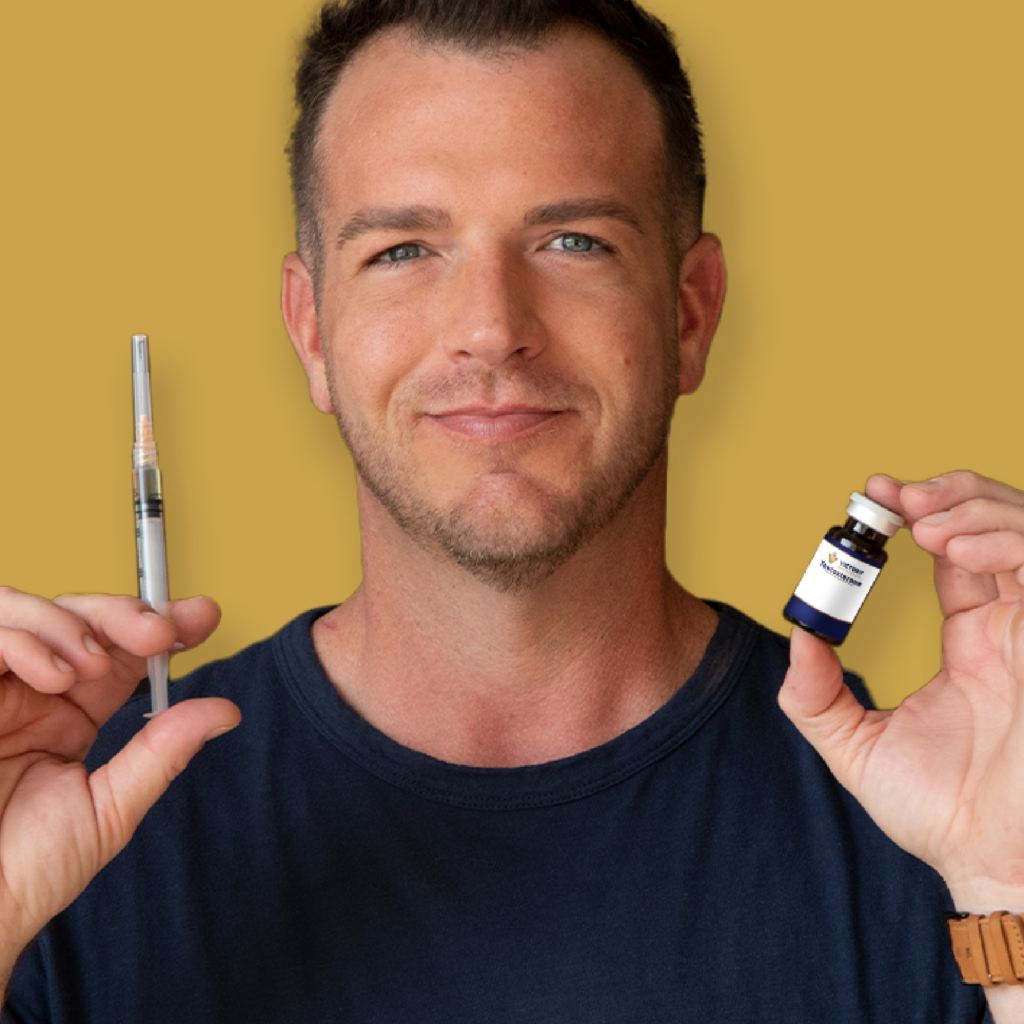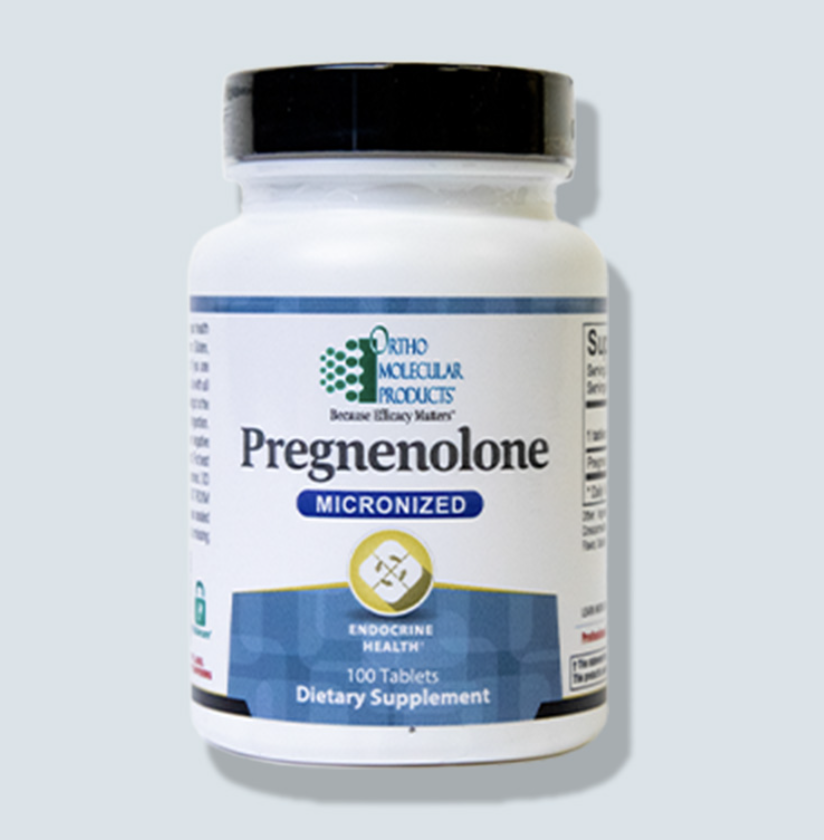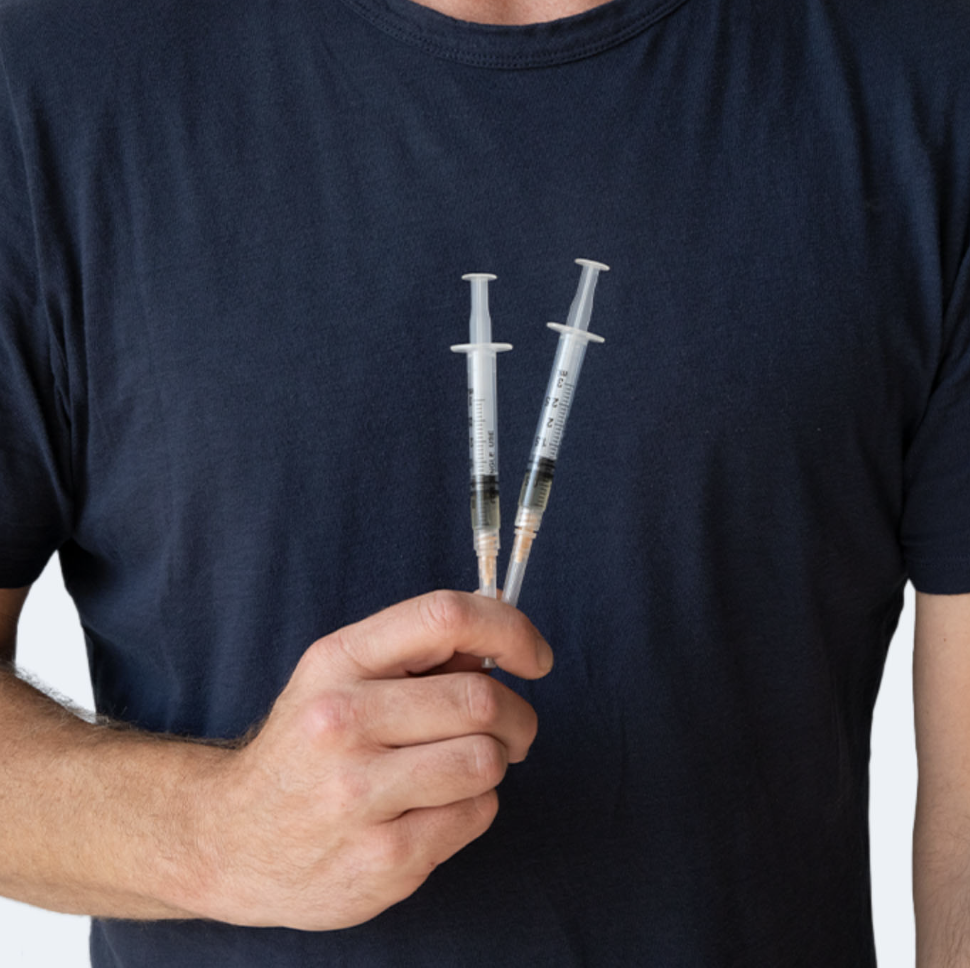Testosterone therapy can be a game-changer for men experiencing the effects of low testosterone due to aging or health issues. This key hormone affects energy, libido, muscle strength, and mood. When levels drop, it can really impact how you feel day-to-day.
By restoring testosterone levels through a variety of methods, you’re able to reclaim the vigor and robustness of life. That’s where testosterone therapy steps in, helping to boost levels back up so you can feel strong and vibrant again. At Victory Men’s Health, we’re experts in men’s health and know there’s a difference between “normal” and “optimal” testosterone levels. Your provider should not just aim to not just get you back to normal, but to your personal best, with a tailored approach that goes beyond what you’d find at a general practitioner’s office.
But how long does it really take to see results once you start testosterone therapy? Here is our experience.
What am I supposed to be feeling?
When testosterone replacement therapy (TRT) starts working, it’s like flipping a switch back on in your body. Within a few weeks, you might notice an uptick in energy and mood, making daily tasks feel less like a chore and more manageable. Libido often picks up around this time too.
By the three to six-month mark, more substantial changes become evident. Muscle mass may increase, body fat could decrease, and overall physical strength feels enhanced. Mental clarity and focus improve, making it easier to stay sharp throughout the day. It’s a gradual process, with the full spectrum of benefits unfolding over time, but when TRT hits its stride, you’ll likely feel more vibrant, balanced, and ready to tackle life with renewed vigor.
Here’s a deeper look at what the TRT process looks like:
Everyone’s experience with TRT can vary. Some people begin to notice improvements within the first few weeks of starting therapy. Generally, the average time to start seeing noticeable changes is around 6 weeks. Patients often report initial improvements in energy and mood, but it’s around the six-week mark that many experience more significant, systemic improvements in their overall health. However, it’s important to remember that for some, these changes can happen more swiftly, while others may need a bit more time to adjust and see results.
It varies from person to person. Some might notice improvements within the first few weeks, but on average, most people start to feel significant changes around the six-week mark. This can include both physical and mental health improvements.
We tailor the dose based on individual factors, including lab results and how the patient feels. It’s not a one-size-fits-all approach, and adjustments are made based on follow-up assessments and lab work to find the optimal dose.
Testosterone therapy is considered safe for most people when administered under the guidance of a healthcare professional. Side effects may include acne, fluid retention, and changes in sleep patterns, with more severe reactions being rare. It’s important to discuss potential risks and benefits with your healthcare provider.
Yes, if you stop therapy, your body’s natural production will eventually resume, typically returning to levels similar to those before starting therapy. However, cycling on and off testosterone as a strategy is not recommended outside of bodybuilding contexts.
We provide a personalized approach, adjusting dosing based on regular lab work and patient feedback. Our goal is to achieve optimal levels that improve quality of life while monitoring for any potential side effects.
Testosterone Therapy Timeline
- Initial Consultation and Evaluation
- Start Your Testosterone Therapy Treatment
- See initial results within the the first few weeks, and then continued progress over the following months
- Ongoing monitoring and dosage optimization as you enter maintenance
Step 1: Initial Consultation and Evaluation
The first step of any testosterone therapy is a thorough consultation and evaluation. At Victory Men’s Health, our healthcare providers start by understanding your medical history, lifestyle, and specific concerns. Then, we begin the physical examinations and blood testing. This holistic approach allows us to develop personalized treatment plans for your unique needs.
Not only is this a time to evaluate your body, but also see if you trust the provider. Testosterone therapy is a process, so it takes multiple visits to see results. Communication is essential to testosterone therapy, so feeling comfortable addressing concerns is the cornerstone for successful treatment.
Step 2: Starting Testosterone Therapy
There are several options available for testosterone therapy, so it’s all about what works best for you. Whether it’s injections, topical creams, or pellets, we prioritize efficacy, safety, and convenience. We provide detailed instructions on administration techniques and offer ongoing support to ensure a smooth and successful start to therapy.
Step 3: Short-Term Effects
During the early stages of testosterone therapy, you may experience improvements in energy levels, mood, and sexual function. These short-term effects are often the first signs of the treatment working correctly.
Some men notice they start feeling better in just a few weeks, but it’s different for everyone. Think of it like planting a garden; some seeds sprout faster than others.
Step 4: Medium-Term Effects
As testosterone therapy progresses, you can expect to see further improvements in muscle mass and strength. The medium-term effects of therapy go beyond physical changes to increased mental and emotional well-being.
Step 5: Long-Term Effects and Maintenance
Sustaining the benefits of testosterone therapy requires long-term commitment and ongoing monitoring. At Victory Men’s Health, we emphasize the importance of regular follow-up appointments and hormone level assessments.
Through proactive adjustments to treatment plans, we ensure that you continue to experience results while minimizing any potential risks or side effects.
Testosterone Therapy: What Are My Next Steps?
At Victory Men’s Health, we are dedicated to providing comprehensive and personalized care that empowers men to reclaim control of their lives. From the initial consultation to long-term maintenance, our team is committed to exceeding expectations and delivering life-changing results.

Whether you are certain testosterone therapy is right for you, or are still unsure of its benefits, Victory Men’s Health wants to help. Schedule an appointment today to start your journey toward renewed vitality and confidence.
Where Can I Learn More About Testosterone?
For those interested in learning more, we invite you to check out the Women Want Men Strong podcast hosted by Amy Stuttle is the founder and CEO of Victory Men’s Health.
Available on YouTube, Apple Podcasts or Spotify, this episode sheds delves into the intricacies of testosterone optimization, shedding light on common misconceptions and outdated practices prevalent among physicians.



